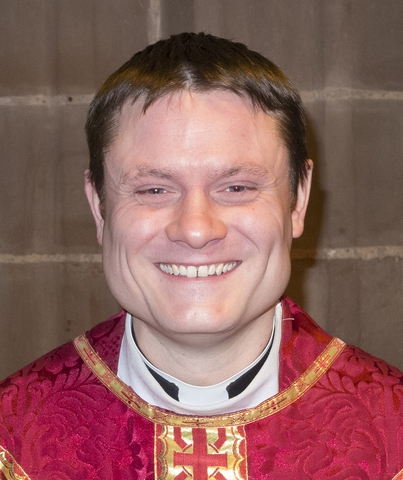
February News From the Clergy
21 Jan 2022 • From the Clergy
As I write this, I am in my second day of isolation after a positive Covid test. It is a frustrating experience, given that I am not ill and staying still does not agree with me. One can only clean the oven so many times.
As with the lockdowns of the last two years, it becomes a disorientating experience when the normal framework of life is removed. As March 2020 became April and then May, it was often hard to remember what day of the week it was as the daily routine seemingly repeated on an endless cycle. It wasn’t hard to see how quickly you could lose track of time on a desert island.
It was an achievement, though, in the twenty-first century, to lose track of time.
Calendars don’t just stare down at us from walls any more; mobile phones, computers, cars, electronic signs and all manner of devices keep us constantly in touch with exactly what hour of what day it is anywhere we happen to be. Ironically, this has happened despite the fact that the seasons and the time of year have largely ceased to matter for many of us. Yes, we huddle indoors in the winter complaining about the cold and dark and damp, or shelter indoors in the summer complaining about the heat and sun and lack of rain (there’s no pleasing anyone in this country when it comes to the weather), but much of our daily existence continues whether it is January or July. These days, you can get asparagus and apples in the supermarkets in both months.
In centuries past, however, before calendars, electricity and central heating, the changing seasons and the differences between them mattered enormously. The work done in the late summer harvest was essential to survive the lean times of winter. The rhythm of life was much more closely attuned to the rhythm of the seasons.
And though we may not think about it, our church life is also tied into this rhythm. Some of the most obvious links, such as Rogationtide, Lammas Day and Harvest, may have lost any immediate connection with twenty-first-century urban congregations. Yet the very pattern of the church year is designed as a cycle which emphasises the human experience and God’s part in human history and our worshipping lives. Think about the name each Sunday has in the church calendar; these are carefully planned, not random. (There is a reminder of this in the term ‘proper’, sometimes encountered in relation to the collect and post-communion, which historically meant all the parts of the mass which varied.) Even the Book of Common Prayer, which makes minimal concessions to this and tries as far as possible to make the service invariable, allows a weekly collect and the odd seasonal paragraph.
One of the great advantages of Common Worship is that it restores this medieval pattern of seasons. Far from just focusing on our favourite Biblical passages or the ‘feel-good’ festivals, it makes us confront the whole story. We move from expectation and preparation in Advent, to the wonder of the incarnation and its revelation at Christmas and Epiphany, to Lent (via everyone’s favourite of bizarre counting, Septuagesima, Sexigesima and Quinquagesima) and the consideration of penitence, to the great joy of Easter, Ascension and Pentecost.
Alongside the highs of Christmas and Easter sit the dark moments of Ash Wednesday and Good Friday, a reminder of both the joys and challenges of human existence; as we delight in summer, so too we must confront winter.
Even Ordinary Time, which we can be tempted to see as a long stretch of everything being decorated green, reminds us that life is not simply a rollercoaster of these highs and lows. It provides us with an opportunity to engage with different parts of the Bible, to reflect upon different aspects of our faith. In a world where, even in the midst of a pandemic, there often remains a desire for instant gratification, there is something crucial about recognising this rhythm and working with it rather than against it.
Appreciating that cyclical rhythm gives us hope too, in a time when things seem far from hopeful, that from the deepest despair comes redemption. We do not stand alone, confronting things for the first time, but rather we are part of the human story, a story in which God gives us hope in his plans for the future.
Phil